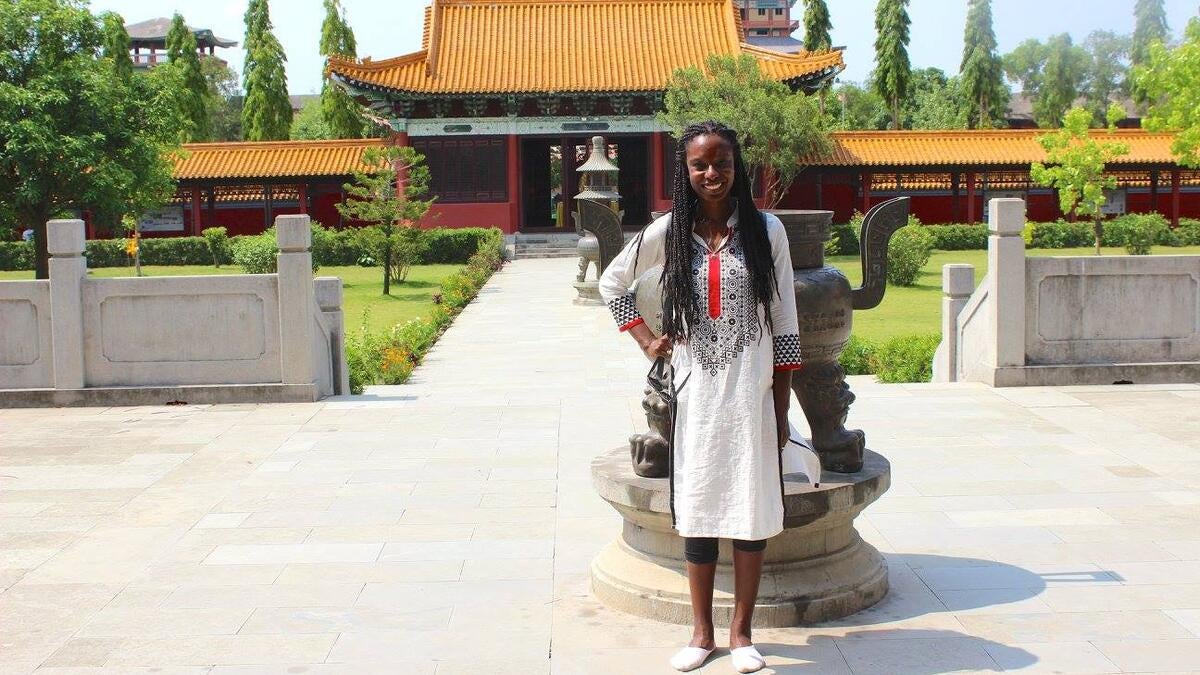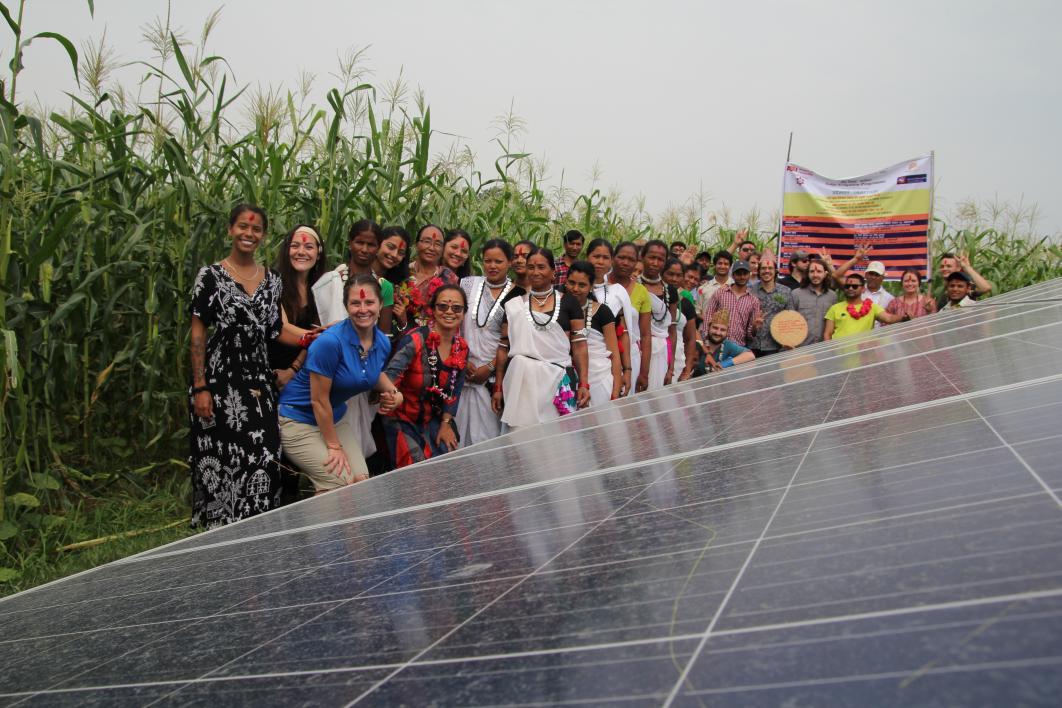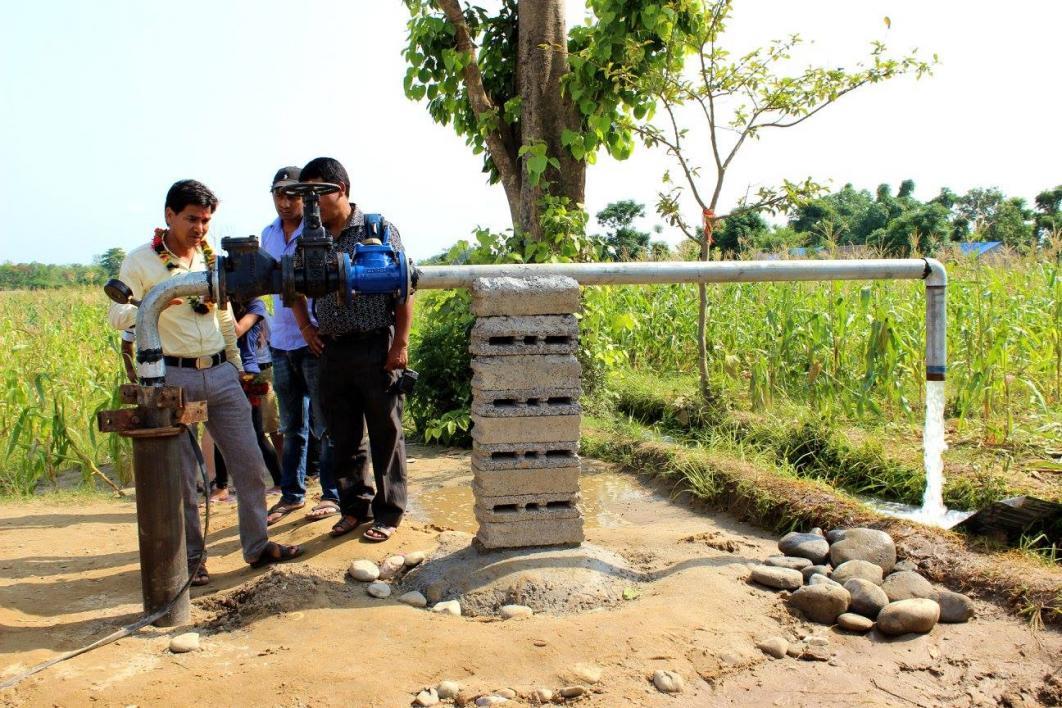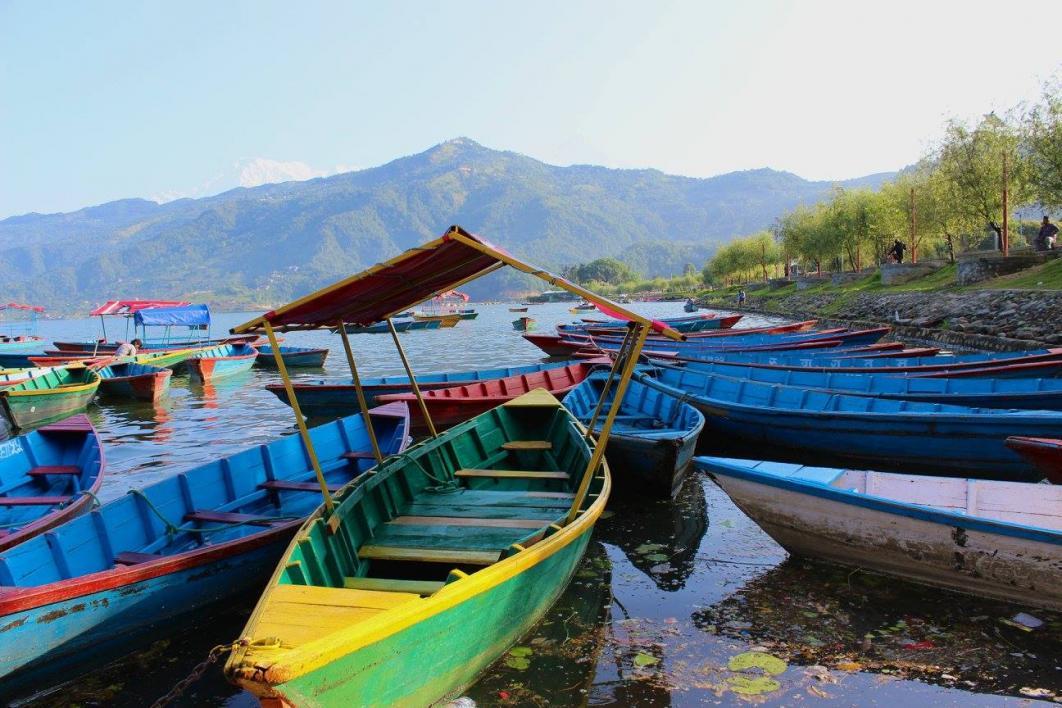As Arizona State University senior sustainability scientists Nalini Chhetri and Netra Chhetri know, some educational experiences are more effective outside the classroom.
That’s why the wife-and-husband pair of ASU professors have directed a study abroad program in Nepal for nearly five years.Though directing the program isn’t easy, Nalini Chhetri — who is also the assistant director of the School for the Future of Innovation in Society — said she keeps doing it because she wants to “provide students with immersive and hands-on experience that has authenticity and credibility. Doing so allows students to have a deeper awareness and respect for local knowledge that supplements their classroom learning, and that is invaluable in preparing them to make a positive difference in this complex world.”
While past programs have taken place only in Nepal, June 2019's three-week program, called “Innovation in Green Growth in China and Nepal,” will also take students to China as well. Students will spend time in Kathmandu, Nepal’s capital; the farming community of Pokhara, Nepal; and Guangzhou and Shishou, cities in China.
Specifics have changed from year to year, but the focus of the program is always on engaging communities in sustainable growth and renewable energy. In 2018, 14 ASU students from various majors participated in five main activities: They led STEM projects for schoolchildren, attended workshops to design an eco-park protecting Rhino Lake in Chitwan National Park, produced high-quality biochar, installed a fully operational solar irrigation system serving an indigenous community and learned from sustainable farmers in Pokhara.
Almost all activities on this study abroad program, offered through the ASU Study Abroad Office, are done in conjunction with local university students.
“I attribute so much of my learning towards my interactions and conversations with these students and would not have learned anywhere near as much without them,” said School of Sustainability PhD student Leah Jones, who joined the study abroad program in 2017 (pictured at the top of this article). “I was able to pick their brains and learn about the nuances of Nepali culture in a unique way, while also being able to share my American culture with the students.”
For School of Sustainability undergraduate Mikka Suhonen, who participated in 2018, learning from the sustainable farmers was a major trip highlight. As he noted, the farmers had radically different landscapes on which to create their farms.
“In turn, each farmer had unique approaches to creating their livelihood on that land,” Suhonen said. “One farmer had an intricate system where water would carry pig slurry down a hill to a pond in order to feed the fish inhabiting it. Another utilized the different heights of trees and vegetation in order to grow shade crops such as coffee. And another raised fish in a rice paddy, which fed the fish on bugs that normally prey on the rice stalks. The best part? We call it sustainability, but they call it surviving.”
This aspect of the program will remain in 2019. “There is no alternative to learning by observing and engaging with the farmers to whom the practice of a sustainable system is a way of life,” Nalini Chhetri said.
The 2019 study abroad program will also give students hands-on experience with sustainable economy projects and sustainable development that revolves around renewable energy. Applications are accepted until March 1, 2019, and the program is open to all majors. Students will receive four credits by the end of their experience. The Chhetris will again direct the program, along with the support of John “Marty” Anderies, a professor in School of Sustainability and the School of Human Evolution and Social Change.
“If you ever have the opportunity to be a part of this program with the Drs. Chhetri, I highly recommend it,” Suhonen said. “They are fantastic people, and the trip is surreal, both in experiences and natural beauty.”
Video courtesy of ASU student Megan Dieu, who participated in the program in 2018.
Top photo: Leah Jones, a doctoral student in the School of Sustainability, joined the Nepal study abroad program in 2017. To learn more about the 250-plus study-abroad programs in more than 65 different countries offered at ASU, see the Study Abroad Office website.
More Science and technology

ASU professor wins NIH Director’s New Innovator Award for research linking gene function to brain structure
Life experiences alter us in many ways, including how we act and our mental and physical health. What we go through can even change how our genes work, how the instructions coded into our DNA are…

ASU postdoctoral researcher leads initiative to support graduate student mental health
Olivia Davis had firsthand experience with anxiety and OCD before she entered grad school. Then, during the pandemic and as a result of the growing pressures of the graduate school environment, she…

ASU graduate student researching interplay between family dynamics, ADHD
The symptoms of attention deficit hyperactivity disorder (ADHD) — which include daydreaming, making careless mistakes or taking risks, having a hard time resisting temptation, difficulty getting…




